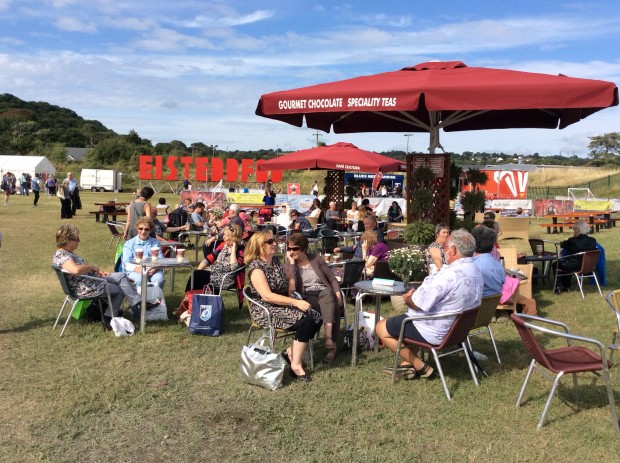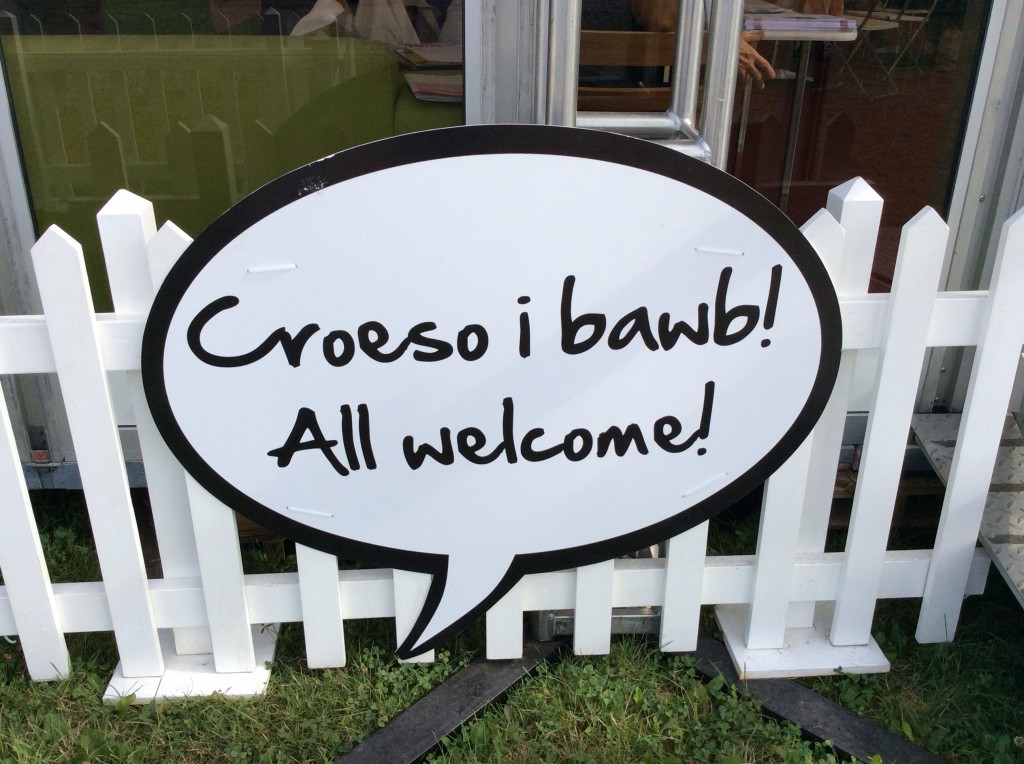If you are a non-Welsh speaker don’t let this put you off, the National Eisteddfod has something for everybody! Although all the events at the festival are held in Welsh, you can still have a great time at the Maes if you know how to make the most of your visit. Here you have some recommendations!
1. Pick up your translation kit
The first thing you are going to need is the Activities Brochure. There you will find which sessions have simultaneous English translation available. All the competitions at the Pink Pavilion have this service in place, but further down the Maes there are also other translated events in different tents. You just need to look for the translation logo in the Activities Brochure or check the National Eisteddfod web page here.
Be aware that most of the activities outside the Pavilion don’t offer this service, but you might find something of your interest among the ones available every day. Just choose the ones you like and then head to the Door 7 of the Pink Pavilion to collect your translation kit. The team at the stand will also be more than happy to help you with any doubts you may have.
2. Pay a visit to Maes D
The Welsh Learners tent is another good stop during your visit to the National Eisteddfod. They have activities for all the levels, even for those who don’t speak any Welsh. Join one of the Welsh Taster Sessions they have every morning and you will learn the basic phrases you need to have your first go at this language.
3. Look for the music
The National Eisteddfod is a celebration of Welsh culture so you will find many things at the Maes that don’t really need translation. There isn’t probably a more universal language than music, and you can find loads of it at the festival. Don’t miss the Caffi Maes B for some small gigs or the Ty Gwerin for more folky tunes. The outdoor stage, next to the food stalls, also keeps a great atmosphere the whole day long.
4. Enjoy a play or dance
This year the National Eisteddfod has a Drama Village in place, with all sorts of plays going on during the week. There are a few of them with translation available but it is also a good idea to go for one in Welsh and see what you can get from the actors’ expressiveness. You might be surprised of how fun that can be! The Dance tent also offers loads of options for non-Welsh speakers and there you can learn a bit more about Welsh traditional dances.
5. Take your time at the stalls
You will find amazing things at the stalls if you take your time to explore them carefully. Crafts, food, gifts … the offer is broad and most of the products have their own story behind, so ask the vendors and you will find out all sorts of curiosities!
6.Come with an open-mind
The most important thing is that you come with a good attitude and ready to experience Welsh culture at its best. You might feel a bit out of place at the beginning because all around you is happening in Welsh, but if you keep your mind open you will quickly find your place. Sometimes, not understanding the language allows you to see things from a different perspective, so just keep your eyes open and you will have a great time at the National Eisteddfod!




Comment on this article